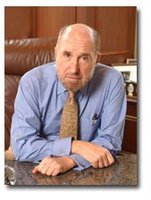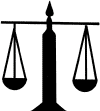 In a brief dated yesterday, New York’s Attorney General responded to the lawsuit brought by Public Citizen and an upstate law firm to challenge the new adverting rules for attorneys (see: Skadden Website and Others Named In Ethics Lawsuit). The reply brief was emailed to me and can be found here: ResponseMemo.pdf
In a brief dated yesterday, New York’s Attorney General responded to the lawsuit brought by Public Citizen and an upstate law firm to challenge the new adverting rules for attorneys (see: Skadden Website and Others Named In Ethics Lawsuit). The reply brief was emailed to me and can be found here: ResponseMemo.pdf
One of the subjects I had harped on was how vague the rules were, so that it was impossible to know if they were being violated or not. This one in particular, prohibited:
“techniques to obtain attention that demonstrate a clear and intentional lack of relevance to the selection of counsel, including the portrayal of lawyers exhibiting characteristics clearly unrelated to legal competence.” 22 NYCRR 1200.6(c)(5)1
Having pondered that question when I wrote Is My Family Photograph An Ethical Violation in New York?, I opened the brief and did a search for the word “vague” to see how the State responded to the plaintiff’s brief on the critical subject.
But my search came up blank. The State didn’t respond to the issue, which speaks volumes to me on how indefensible the point is.
In fact, the first point they make — and indeed it appears to be the only one outside of the procedural issues that fill most of the brief — is that the ads at issue were false. Why? Because the State has taken the position that humor is not allowed. Think I’m kidding? Here it is at pp. 12-13 of the brief:
Defendants suggest to the Court that the advertisements submitted by Plaintiff are not a complete catalog of their television advertisements. However, in just the few submitted there are patent falsities. Irrespective of whether Plaintiffs intend their commercials to be humorous, it cannot be denied that there is little likelihood that they were retained by aliens, have the ability to leap tall buildings in a single bound, or have stomped around downtown Syracuse, Godzilla-style. These absurdities, however, are not the most disturbing misrepresentations to be found in these advertisements.
In the alien advertisement, Plaintiffs suggest that damage to the alien’s spacecraft should be paid for by an insurance company, to which the alien responds that the insurance company said “no way.” In response, suggesting that this space vehicle insurance company can be compelled to pay for damages (without any indication of legal liability), attorney Alexander responds by saying “then we’ll get them to say ‘yes, way'” followed by attorney Catalano saying “because we’re the heavy hitters.”
Without support of any kind, Plaintiffs claim that use of the term “heavy hitters” only suggests their knowledge of the field in which they practice. However, a “heavy hitter” is defined as either “a baseball player who makes many extra base hits [or] a very important or influential person.” Webster’s Encyclopedic Under Bridged Dictionary of the English Language, 1996. Rather than suggesting knowledge, Defendants submit that the use of the term in conjunction with a suggestion that they are able to compel an insurance company to make a payment, without even the slightest suggestion that any such payment would require some legal basis, serves more to mislead the uninformed public to believe the “heavy hitters” can bring to bear certain powers or influence that have no relationship to their knowledge or the facts of the case at hand. The falsity of the advertisements, alone, are sufficient to warrant restriction.
Now I am not a fan of most attorney advertising, and I don’t do any other than my web site, and these ads in particular seem not only sophomoric, but an embarrassment to the profession. But there is a First Amendment issue at stake. And if the State wants to ban something, it must be specific as to what it is banning. And this was not done.
So there it is, the ultimate lawyer joke, brought to you New York Attorney General Andrew Cuomo: Humor has now been banned.
For more information on the subject:
Update, 4/2/07: From f/k/a, many links and comments on attorney advertising issues from around the country: the bar’s self-importance is undignified (tasteless, too)
 Celebrity matrimonial lawyer, talking head and author Raoul Felder is all over the legal news these days because of a new book he co-wrote with Jackie Mason. (see: N.Y. Judicial Conduct Commission Throws the Book at Chairman-Author)
Celebrity matrimonial lawyer, talking head and author Raoul Felder is all over the legal news these days because of a new book he co-wrote with Jackie Mason. (see: N.Y. Judicial Conduct Commission Throws the Book at Chairman-Author)


